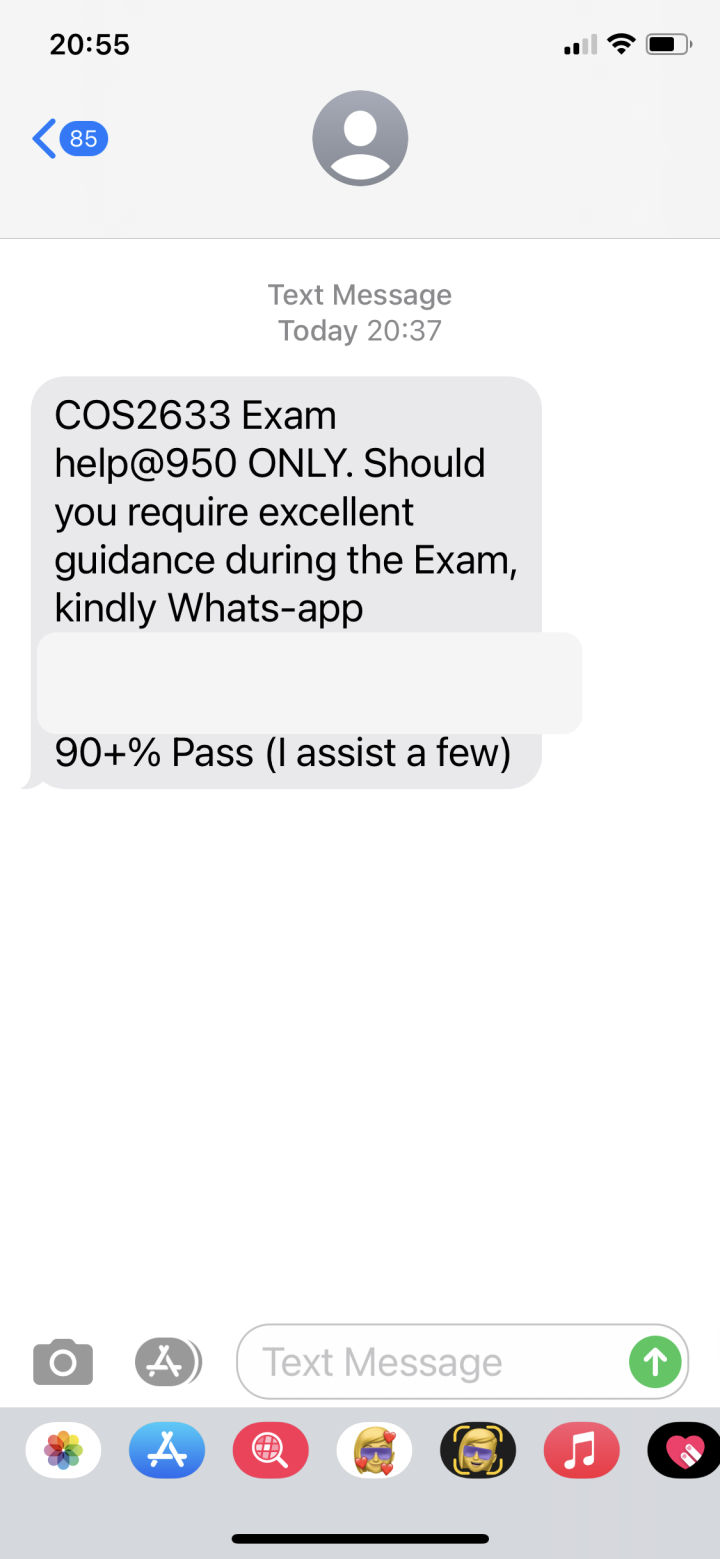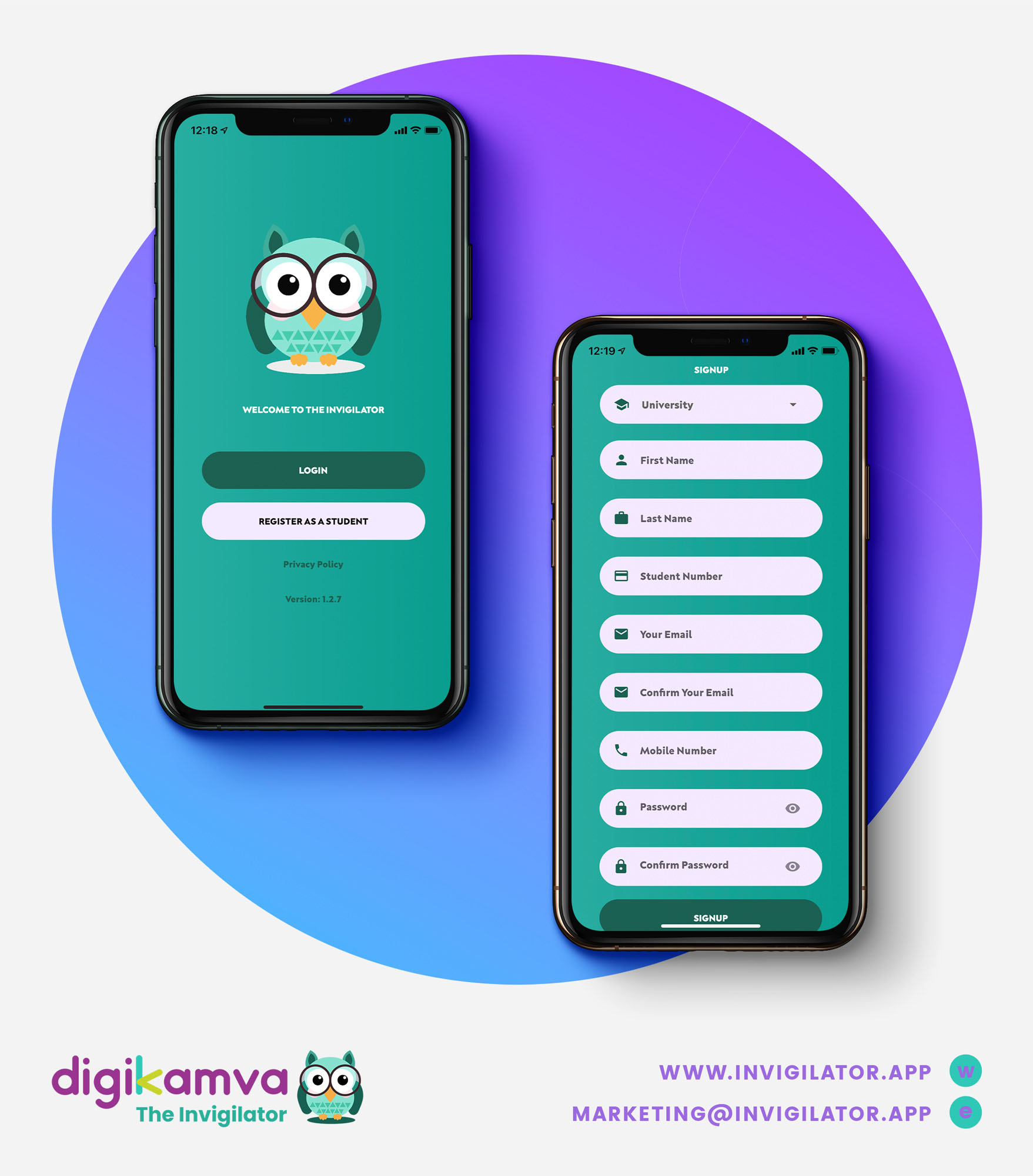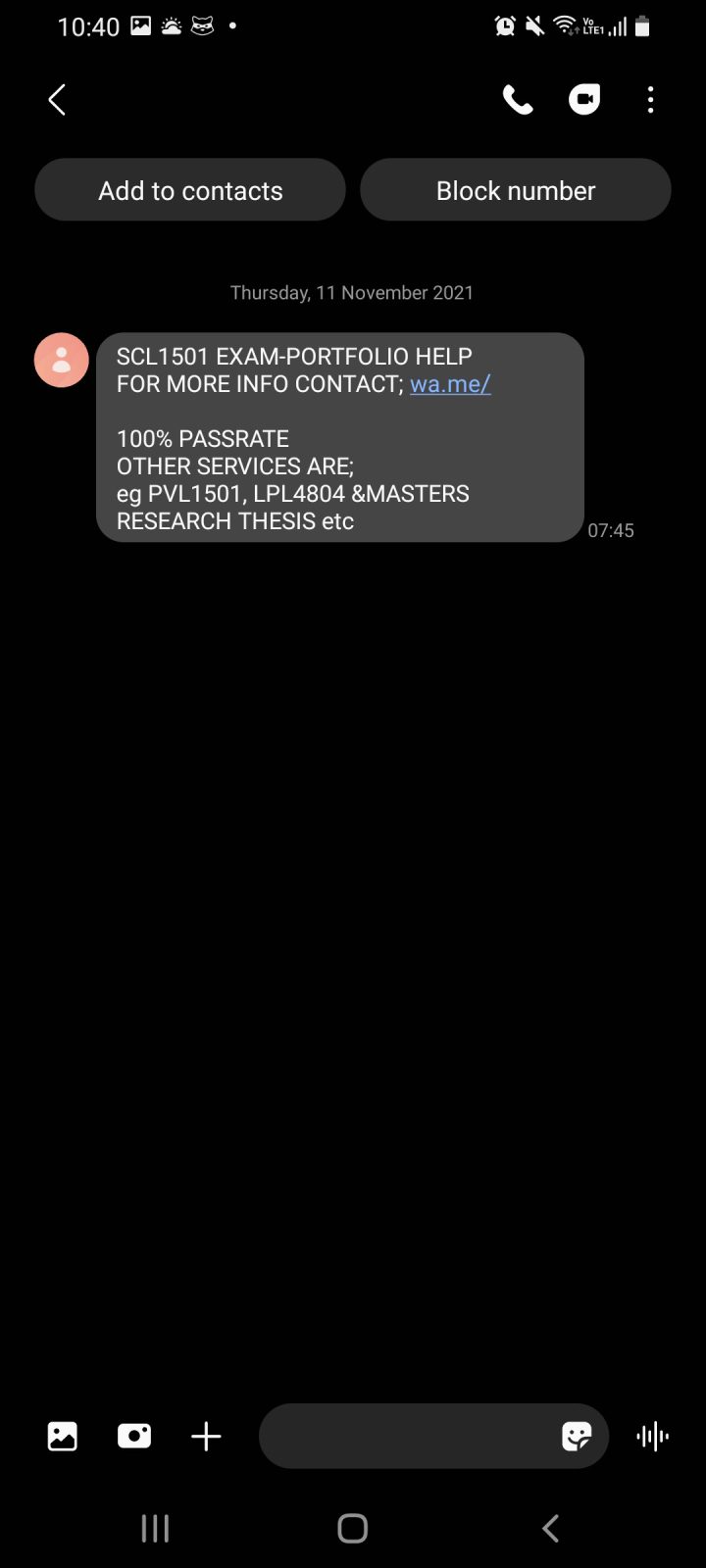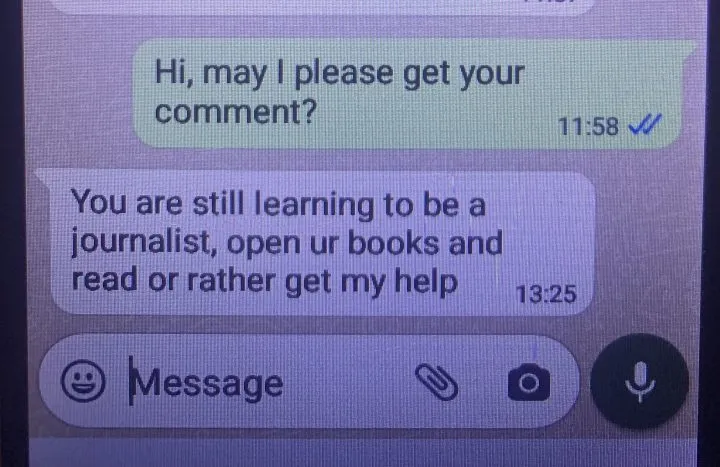APP TO THE CHALLENGE
The ‘Owl’ is watching varsity exam cheats, but tech-savvy few don’t give a hoot

In the age of online exams, academic misconduct is taking on a new dimension. But a rise in cheating could destroy the credibility of university qualifications. But, as in many other things, there’s an app for that.
Universities are adopting proctoring software to help invigilate online examinations and maintain the integrity and credibility of their qualifications.
But with this “new normal” students are finding creative ways to sidestep the systems and get “extra help” on their assessments.
According to Stephen Marquard, the acting deputy director of the Centre for Innovation in Learning and Teaching (CILT) at UCT, the number of academic misconduct cases referred to the University Student Disciplinary Tribunal (USDT) has increased in 2020 from previous years.
“Homework sites such as chegg.com are a particular concern,” he told Daily Maverick.
Chegg, which sells itself as a one-stop shop for students who need academic help, offers a range of services from homework help to exam preparation and answers from “experts”, all of which professors and lecturers have flagged as encouraging academic dishonesty.
This is an example of “contract cheating”. As Marquard explains, it occurs when students pay an individual or business to do their academic work for them. This ranges from writing essays on a student’s behalf to direct assistance during exams.
Another example flagged by a Daily Maverick reader came in the form of an SMS that read: “COS2633 Exam help@950 ONLY. Should you require excellent guidance during the Exam, kindly Whats-app xxxxxxxx. 90+% Pass (I assist a few).”

This dodgy “exclusive offer” was sent to a University of South Africa (Unisa) student hours before he was due to write the exam mentioned in the text.
Following up on the matter, we reached out via WhatsApp to the person offering exam help and found they had set up a business account.
In the automated response, the service purported to offer a guaranteed pass for any Unisa course for a R700 fee that had to be paid in advance. The business would then send solutions via WhatsApp at 20-minute intervals during the online exam.
Since Unisa has been administering exams remotely from the May/June 2020 assessment period, the university has adopted the Digikamva Invigilator App as a deterrent and detection tool to monitor online exams.
To bypass the Invigilator App, which students are required to download on their phones and keep open for the duration of the exam, anyone using this “service” would have to receive answers through a second phone.

The Digikamva Invigilator App. (Screenshot)
The issue was raised with Unisa, but it failed to address the matter and instead referred Daily Maverick to a press release explaining the university’s commitment to “safeguarding the academic integrity” of its examinations.
Although the exam help may be a ploy to scam students out of their money, Unisa students shared screenshots with Daily Maverick of similar offers they had received.

Responding to Daily Maverick’s request for comment, the person offering Unisa students guidance during their online exams said: “You are still learning to be a journalist, open your books and read or rather get my help.”

The person offering Unisa students assistance during their online exams requires students to pay an upfront payment of R700. (Screenshot)
Co-founder of the Invigilator App, Nicholas Riemer, said Unisa is the company’s biggest client, with 225,000 students. Others include the University of Johannesburg, Rhodes, North-West University, UCT and the Durban University of Technology.
The software is nicknamed the “Owl” by students and is available from any app store. Once students have registered on the platform using their university credentials they are asked to take a selfie which is used later to prove that the correct student is writing the exam. Once in the app students scan a customised QR code to begin the invigilation process.
The app uses artificial intelligence to authenticate photos and flag recordings containing speech, and uses GPS mapping to see whether students are potentially writing in groups. They are also able to upload their exam scripts to the app.
For example, students can be asked at random moments to take photos of themselves or anything else the lecturer deems relevant to rule out misconduct.
The app, which Riemer said was a solution to the costly proctoring software on the international market, is built around an entry-level smartphone and doesn’t use video to monitor students.
“The problem with streaming video is that it is very data intensive and requires extremely fancy devices to do so. Those types of solutions are not affordable or scalable.”
But some students say there are ways to cheat despite the app.
Unisa student Nkosazana Ngubeni said, “yes, it is very easy to cheat, very easy”, while fellow Unisa student Letsoalo Madimetsa said even a webcam wouldn’t be able to stop students from checking their notes.
“It will not be able to monitor what’s happening on the screen. I can open a book and paper at the same time and use the internet. They will not see anything because the camera is focusing on the student.”
However, Riemer said it would take students more effort to try to bypass the application than to just study.
“For students to beat our system, they need to know everything that happens on the back end and because it’s customisable it’s always changing, so that’s never going to be the case.”
He said a number of unethical instances have been picked up through the app. In the case of contract cheating, his company has been alerted to people and companies offering to write on a student’s behalf or sharing answers via WhatsApp. However, artificial intelligence software on the app can pick up similarities in exam scripts.
According to Marquard, proctoring tools can be alienating and stressful for students who struggle with the set-up process, encounter technical issues or feel it is intrusive.
“There’s a lot of push-back against it internally.”
Mosima Mehlape, Sol Plaatje University’s spokesperson, said the institution was using a hybrid model to assess students, with the majority of assessments conducted online.
Mehlape said there were “a few cases” of students cheating during this year’s mid-year assessments and that these incidents were used “to strengthen our controls to prevent similar incidents moving forward”.
Wynand Boshoff, a member of the parliamentary higher education committee, said universities needed to come up with innovative ways to test students. “When I was in university, oral exams were a big thing. Perhaps that could be introduced via Zoom as a measure to prevent this kind of cheating,” he told Daily Maverick.
Marquard said continuous assessment was more effective, while Riemer said students shouldn’t be required to merely regurgitate information during exams.
Professor Ahmed Bawa from Universities South Africa (USAf), said steps are taken to discipline students found cheating and annul their examination results.
But academic misconduct can also water down the credibility of an institution’s qualifications.
In October, a leaked report by a ministerial task team appointed by Higher Education Minister Blade Nzimande to conduct a formal review of Unisa, allegedly questioned the quality of its qualifications. It insinuated that a network of corrupt officials was active at the institution.
Although the university has publicly referred to the report (which has not been officially released) as “misleading, malicious and inaccurate”, enough doubt has been cast on the institution that it is being referred to as a “degree mill”.
Though Unisa did not directly respond to our queries about whether it had concerns about cheating affecting the quality of its qualifications, it did say:
“The university is satisfied with the level of intervention in place in securing the integrity of both our examinations and qualifications.” DM


















 Become an Insider
Become an Insider
Comments - Please login in order to comment.